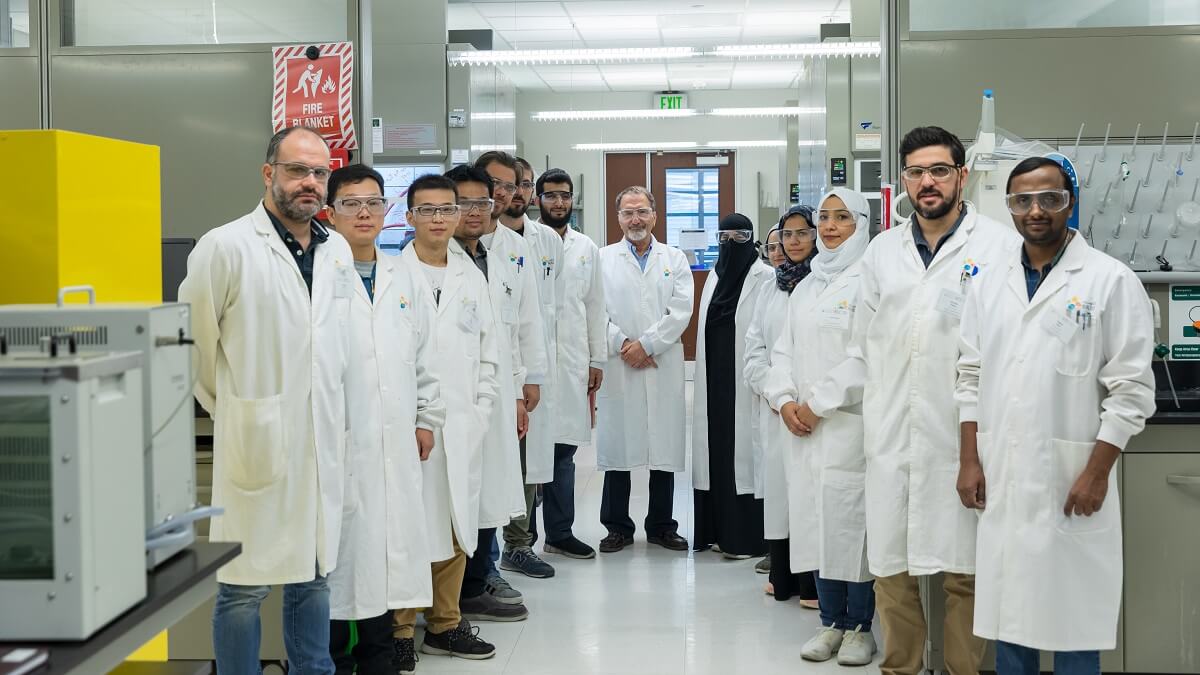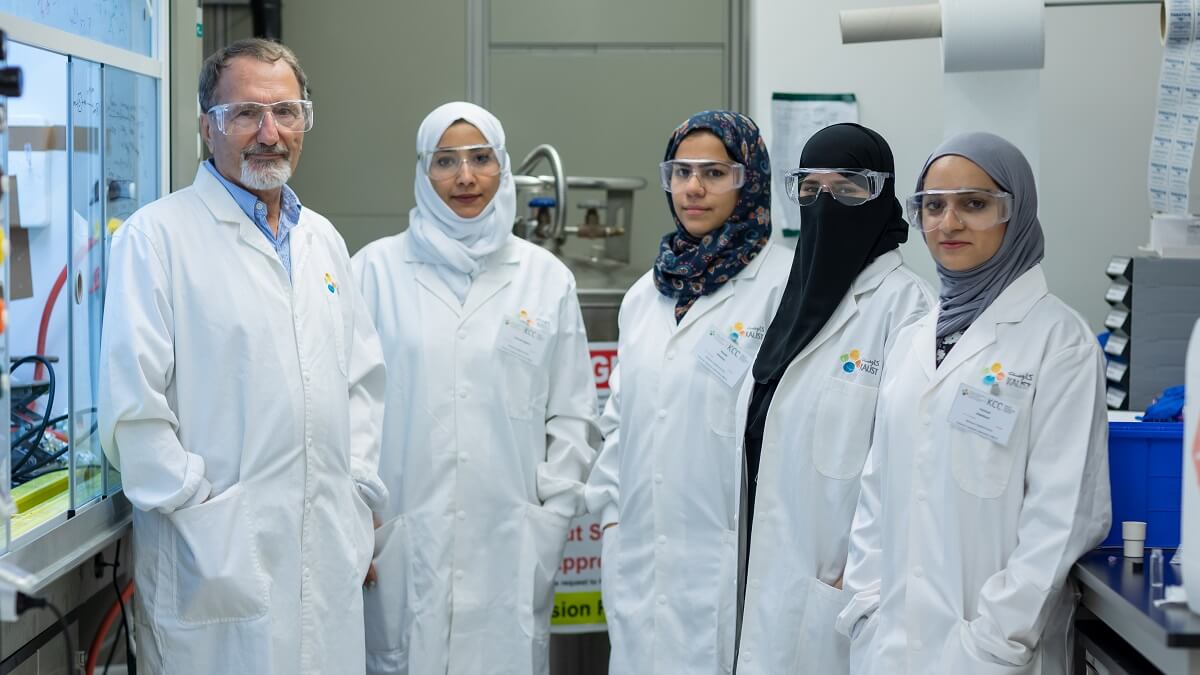Student Focus: Reem Alghamdi

KAUST Ph.D. student Reem Alghamdi (sixth from right) works in the KAUST Catalysis Center under the supervision of Distinguished Professor Nikos Hadjichristidis (center). File photo.
By Tanya Petersen, KAUST News
Polymer products are found in everything from tableware to car parts and toys—products used in our daily lives—and, as KAUST Ph.D. student Reem Alghamdi noted, polyethylene, the polymer that she works on, can probably be found anywhere from our homes all the way to outer space.
Alghamdi works in the KAUST Catalysis Center under the supervision of Distinguished Professor Nikos Hadjichristidis. There, she concentrates her research on elevating the quality of industrially used polyethylene. To do this, she focuses on synthesizing a nanocomposite of polyethylene and nanomaterial that can be used as a reinforcement for any industrially made polymer to improve its mechanical characteristics. The result of Alghamdi's research so far is a hybrid organic-inorganic product that will be used as a reinforcement in industrially made polymers, improving mechanical characteristics like hardness by minimizing some manufacturing defects.
"My goal—to elevate the quality of industrially used polyethylene—will be useful for our medication, nutrition, transportation, clothing [and] construction and in many other fields," Alghamdi explained. "In all these fields, using a higher-quality polymer could make a huge difference. For example, car tires that are affected by sun exposure and friction can last much longer by enhancing the mechanical properties of their polymeric materials."

KAUST Ph.D. student Reem Alghamdi (second on right) is shown here with her KAUST research colleagues and Distinguished Professor Nikos Hadjichristidis (left), her Ph.D. supervisor. File photo.
She also taught chemistry to students at a public school, where she "got to know the thrill of extending knowledge to other people," she said. "When I experienced that, I knew for sure that I wanted to have an academic career, and that's what I have done."
Alghamdi is grateful for her opportunities at KAUST, and described the University as an amazing place with some of the best instruments and equipment globally. Beyond the facilities, one thing that also stands out for her at KAUST is the constant collaboration between colleagues.
"People are always willing to help, and this has enabled me to extend my research and investigations," she said. "At the same time, I've had the opportunity to meet people from different cultures and backgrounds and have a window [to] the world through their eyes. I feel like I have gotten to know many cultures and places, and this is definitely invaluable."
In five years, Alghamdi sees herself equipped with her Ph.D. and hopefully collaborating with a leading organization in polymer science. She also plans to pursue her dream career in the academic field—then she will be able to pass on her knowledge and experience to younger generations.
Related stories:
- Ph.D. student's innovative research wins awards
- Student Focus: Alejandra Ortega
- KAUST Ph.D. students win best presentation awards
-
Student Focus: Abhay Dokania